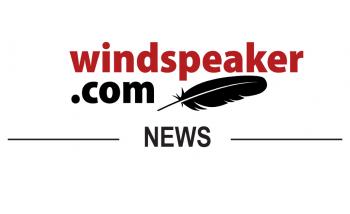Summary
Local Journalism Initiative Reporter
Windspeaker.com
The First Nation of Abenakis of Wolinak is hopeful that negotiations with the Quebec government in the next few months will result in moving forward with natural gas exploration using innovative clean technology in their traditional territory.
However, it stands in contradiction to Premier François Legault’s ban on further oil and gas exploration.
Last October, Quebec outlined its priorities for the term. Among those priorities was to “give up definitively on extracting hydrocarbons on its territory.”
Two months later, the Abenakis of Wolinak entered into a preliminary agreement with Questerre Energy Corp., headquartered in Calgary, to extract natural gas.
“We’re looking for green energy and that is the potential of this technology,” said Dave Bernard, general director with Abenakis of Wolinak.
According to a statement released Jan. 22 by the First Nation and Questerre, the joint venture will focus on developing a net-zero emissions energy hub in Quebec that will demonstrate the emerging circular economy through pilot projects that produce clean energy, including zero-emissions gas, and assess new carbon recycling technology. The hub will evaluate the potential for carbon dioxide sequestration, as well as the production of clean hydrogen using technology developed by ZEG Power, a Norwegian-based company.
Subject to final agreements, the Abenakis of Wolinak will be granted a net profit interest from development on their traditional territories in the Bécancour area.
This means, says Bernard, that if the pilot projects are successful and the Quebec government decides to go on to extract natural gas, “we will have a net profit of all the natural gas extracted.”
The Abenakis of Wolinak will also have the opportunity to acquire a working interest in the exploration licenses from Questerre and directly participate in future development.
“We would become the owners of an extraction site,” said Bernard.
“We are pleased that Questerre has spent the past few years getting to know us, our history and our land in Quebec. They are the first company to fully recognize our traditional-use territories and commit to move forward with full consultation and cooperation with our people. This agreement could bring the prosperity to our nation and equality for our people while protecting the environment,” said Chief Michel Bernard in a statement.
“Our plans for a net-zero technology hub that incorporates emerging new carbon technology is the solution to meeting Quebec’s ambitious climate goals. We look forward to deepening our cooperation with the Abenakis of Wolinak and with all local stakeholders,” said Michael Binnion, president and CEO of Questerre in a statement.
Now that the preliminary agreements have been made public, Dave Bernard says details of the pilot projects will be shared with members and their feedback solicited.
Negotiations will continue with Questerre over the next three to five months, he adds.
As for discussions with the Quebec government, “I believe that should come in the next few months,” said Dave Bernard.
Legal action has not been anticipated “at this point,” he says, if the province doesn’t come on side.
However, the Indian Resource Council (IRC) calls Quebec’s ban on oil and gas development a “clear violation of aboriginal and treaty rights….”
The IRC, established in 1987, advocates for responsible First Nations energy development. It has members from right across the country, including Abenakis of Wolinak.
Chief Brady O’Watch, vice-chair of IRC and chief of the Carry the Kettle First Nation (Saskatchewan), said in a statement IRC will continue to “monitor with great concern” what Quebec is doing.
“The proposed Bécancour zero-emission energy hub not only supports the climate goals shared by the Wolinak Abenakis and Quebeckers generally, but would also provide important source of much needed revenue for the Abenakis in their goal for self-sufficiency,” said O’Watch in a statement.
“It’s always nice to have support from other First Nations and support from Native associations so we appreciate their support,” said Dave Bernard.
Local Journalism Initiative Reporters are supported by a financial contribution made by the Government of Canada.

